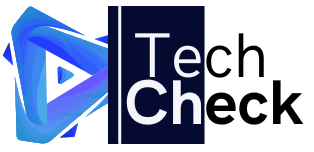The Future of Work: How AI Will Impact the Job Market
Prepare yourself for a seismic shift! Artificial intelligence (AI) isn't just a futuristic fantasy; it's rapidly changing the landscape of work as we know it. From self-driving cars to AI-powered customer service bots, the impact of AI is already being felt across numerous sectors. But what does this mean for your job? Will robots replace humans entirely? Let's dive into the exciting and slightly terrifying future of work powered by AI.
AI: The Job Market Disruptor
The rise of AI is undoubtedly causing ripples, if not outright waves, throughout the job market. Many worry about the potential for widespread job displacement. It's true that certain roles heavily reliant on repetitive or easily automated tasks are at higher risk. Think data entry clerks, factory line workers, and even some customer service representatives. However, the reality is far more nuanced than a simple 'robots vs. humans' narrative. AI will likely reshape, not necessarily destroy, entire industries, leading to the creation of new roles and opportunities previously unimaginable.
AI-Related Job Growth
While some jobs might be lost to automation, the demand for professionals skilled in AI-related fields is exploding. Data scientists, machine learning engineers, AI ethicists, and AI trainers are just a few of the roles in high demand. These jobs often require advanced education and specialized skills, offering attractive salaries and promising career paths. The future of work, in many ways, hinges on our ability to adapt and acquire new, relevant skills.
Adapting to the Changing Landscape
Even those whose jobs aren't directly at risk from automation need to be aware of the changing landscape. The integration of AI into the workplace will necessitate upskilling and reskilling. Learning to collaborate with AI, understanding its capabilities, and acquiring digital literacy will become paramount for securing future employment. Embrace lifelong learning; it's no longer optional, it's essential for navigating the future of work.
New Jobs Created by AI
The development and implementation of AI are not just about automation; they are creating entirely new industries and job sectors. The field of AI itself is ripe with innovation, constantly generating novel demands for skilled professionals. Here are some examples of new roles emerging due to the rise of AI:
AI Prompt Engineers
These professionals fine-tune the inputs provided to large language models to yield the best possible outputs, essential for generating creative content and solving complex tasks efficiently.
AI Trainers and Data Labelers
These individuals are crucial in providing AI systems with high-quality training data to ensure accuracy and reliability. Their work involves meticulously annotating and categorizing data, enabling AI to learn and improve.
AI Ethics Specialists
With the increasing reliance on AI, ethical considerations are of paramount importance. AI ethics specialists grapple with the societal implications of AI, ensuring its responsible and unbiased deployment.
Human Skills Remain Crucial
Despite the advances in AI, certain uniquely human qualities remain highly valued in the workplace. Creativity, critical thinking, complex problem-solving, emotional intelligence, and interpersonal skills are all difficult, if not impossible, to replicate with current AI technologies. These skills will become even more valuable as AI takes on more routine tasks, allowing humans to focus on higher-level, more strategic work.
The Importance of Soft Skills
Soft skills, such as communication, collaboration, and adaptability, are essential for success in the age of AI. These skills enable humans to work effectively with AI systems, manage their output, and adapt to the constantly evolving technological landscape. Developing and honing your soft skills will make you a highly sought-after candidate in any field.
Embracing the Collaboration
The future of work is not about humans versus AI, it's about humans and AI working together. By embracing this collaboration, we can leverage AI's capabilities to enhance productivity, innovation, and overall efficiency. This symbiotic relationship will create opportunities for growth and progress, leading to a more dynamic and exciting work environment.
The Future is Now: Prepare for the AI Revolution
The impact of AI on the job market is undeniable, presenting both challenges and opportunities. While some jobs may be automated, many new roles will emerge, demanding individuals with specialized skills. Those who adapt and embrace lifelong learning, focusing on developing both hard and soft skills, will be best positioned to thrive in the age of AI. Are you ready to be a part of this technological revolution? Start upskilling today!








